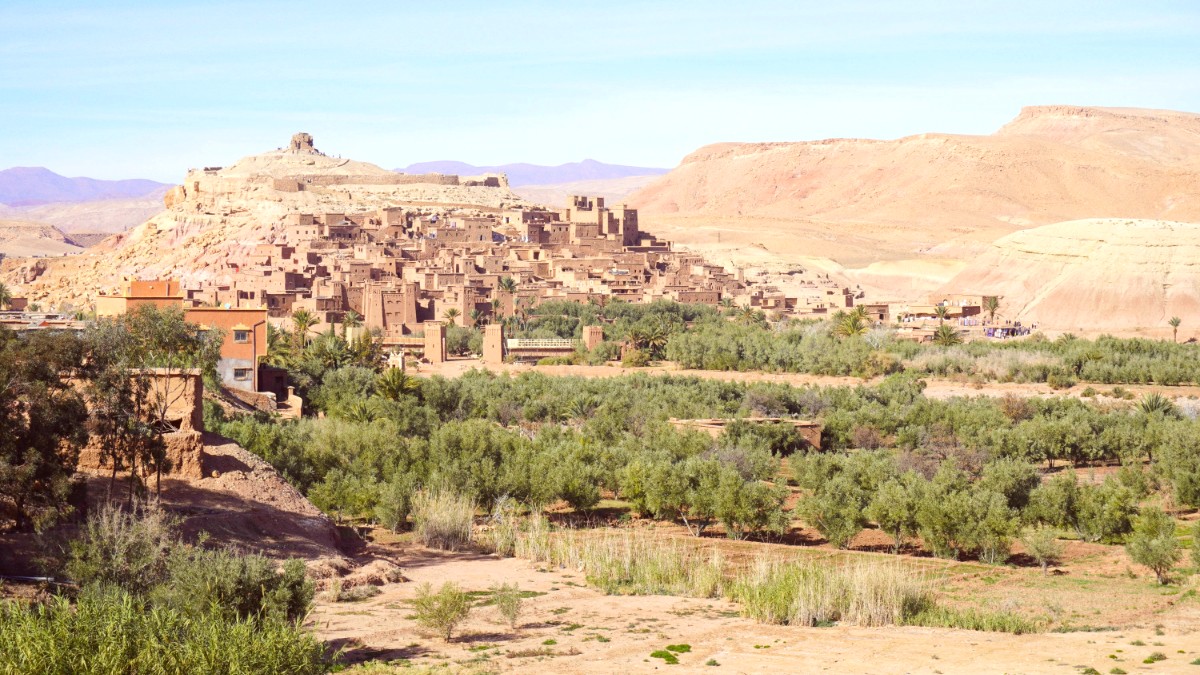
Morocco
Local SIM cards are easily available at major airports (Marrakech, Casablanca, Ouarzazate) and official mobile provider shops in larger cities.
Most guesthouses and hotels in Ait Ben Haddou's new village offer free Wi-Fi for guests. The quality and speed may vary, but it generally suffices for basic browsing and messaging.
Official Languages: Moroccan Arabic (Darija) and Tamazight (Berber) are the official languages. Tourist areas: Moroccan Arabic and French are widely spoken. English proficiency varies.
Learning a few basic phrases demonstrates respect and can open doors to warmer interactions.
Stay connected during your journey. Consider an Airalo eSIM for easy data access or Solis Wi-Fi for portable internet. Better your interactions by learning basic phrases with Rosetta Stone. For local SIM cards, check Options on Amazon.
Familiarize yourself with typical operating times and local rhythms.
Generally open from around 9 AM to 7 PM. Many smaller shops may close for a long break midday (often from 1 PM to 4 PM). In tourist areas, shops may stay open later in the evenings.
Typically open for lunch (around 12 PM - 3 PM) and dinner (from 7 PM onwards, often until 10 PM or later). Guesthouse restaurants usually serve dinner at a fixed time, often around 7:30 PM or 8 PM.
The Ksar of Ait Ben Haddou is accessible all day. Individual kasbah-museums within the ksar operate during daylight hours. Banks generally open from 8:30 AM to 3:30 PM, Monday to Friday. Some may have shorter hours on Fridays.
ATMs: Available in Ouarzazate, the nearest major town. Ait Ben Haddou's new village may have one or two ATMs on the main road, but they can sometimes lack cash. Withdraw cash in Ouarzazate.
Islamic Holidays: Dates change annually with the lunar calendar. Eid al-Fitr (end of Ramadan) and Eid al-Adha (Festival of Sacrifice) are major holidays. During these periods, many businesses, banks, and government offices may close or reduce hours. Public transport may also face limitations.
Carry small bills for purchases, as change for larger denominations can be difficult in smaller establishments.
Displaying respect for local customs creates positive interactions.
Always greet shopkeepers, guesthouse hosts, and guides. A simple "Salam alaikum" is appropriate. Handshakes are common between men. For women, await a signal before initiating a handshake, especially with local men. A hand over the heart with a smile serves as a polite alternative.
Modest clothing is appropriate for both men and women. This means covering shoulders and knees. Loose-fitting clothing often brings more comfort in the climate and shows respect. This matters especially when visiting religious sites or interacting with locals.
Always ask for permission before photographing people, especially women and children. A simple "Photo, s'il vous plaît?" (French) or "Mumkin soura?" (Moroccan Arabic: Can I take a photo?) appears polite. Respect refusals.
Public Displays of Affection: Avoid public displays of affection, even for married couples. Alcohol: Generally not consumed publicly in Ait Ben Haddou. Be discreet if you have alcohol. Politics/Religion: Avoid discussing these unless locals initiate and you feel comfortable and informed. Approach with an open mind and respect.
Your journey flourishes when you show appreciation for local traditions. Engage thoughtfully with communities.
Ait Ben Haddou presents significant challenges for travelers with mobility needs.
Ait Ben Haddou's ksar, with its steep, uneven paths, rocky ground, and numerous steps, is not wheelchair-accessible. It presents great challenge for those with significant mobility issues. Many areas demand climbing and careful footing.
Very limited access. Most attractions mean walking on unpaved surfaces, climbing steps, or navigating narrow, uneven alleys. Transportation options, specifically grand taxis, are not adapted for wheelchair users.